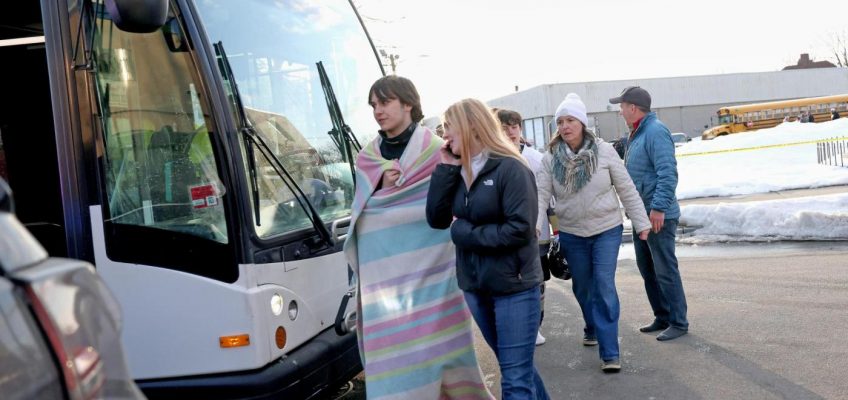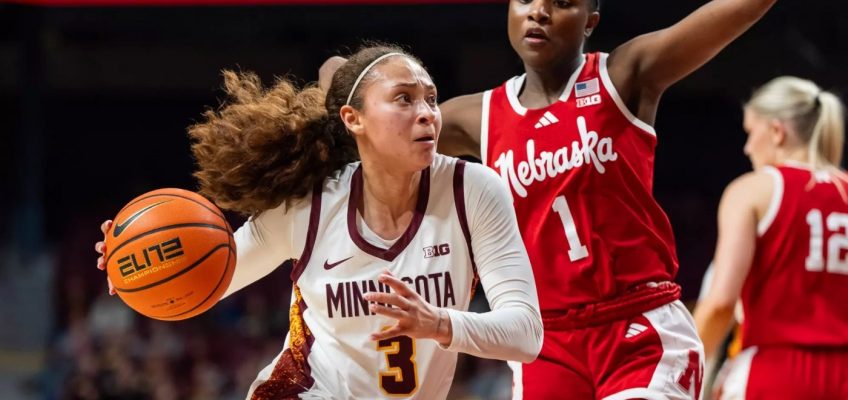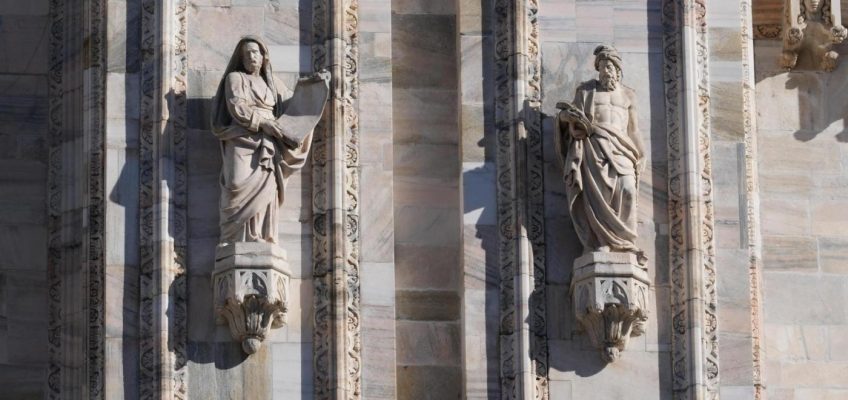By FERNANDA FIGUEROA and KEN MAGUIRE
MILAN (AP) — Olympic hockey knows all about big hits.
That now includes “Heated Rivalry” a gay hockey romance TV series in which two players from opposing teams carry out a secret, long-term relationship.
The steamy connection between the characters — Canadian Shane Hollander and Russian Ilya Rozanov — has attracted fans to both the show and the sport itself, with the NHL seeing a boost in ticket sales by one estimate.
The show’s impact was evident long before the Milan Cortina Olympics when co-stars Hudson Williams and Connor Storrie carried the Olympic flame. And it hasn’t stopped there. Athletes and fans from Canada and the U.S. are feeling the show’s impact.
Athletes recognize the phenomenon
Zach Werenski, a defenseman on the U.S. team who plays for the NHL’s Columbus Blue Jackets, said the show has come up in conversation in the locker room.
“Everyone is saying how great it is, I just haven’t seen it yet,” Werenski told The Associated Press after a 5-1 victory over Latvia. “It’s definitely good for the sport of hockey. Whenever you can add more eyes to the game and have people talk about the game and talk about inclusivity, I think it’s just great for the sport.”
Jake Sanderson, another U.S. defenseman who plays for the Ottawa Senators, said he has heard about the show but doesn’t know much about it. When asked how far off the NHL is from having an openly gay player, Sanderson cited Luke Prokop. In 2021, Prokop was a Nashville Predators prospect who became the first player signed to an NHL contract to come out, though he has not yet played in the league.
“You never know if that show (will) instill some confidence in some people,” said Sanderson, adding that any openly gay player would be fully accepted in the locker room. “I don’t think we would treat them any differently. They’re our teammate, we love them no matter what, and obviously embrace them, absolutely.”
Rachel Reid’s novel “Heated Rivalry” was published in 2019 as part of a series. The TV adaptation, originally developed for Canadian streaming service Crave, was the top-rated series on HBO Max in its first season. It has been renewed for a second season.
Its biggest fans at the Olympics may be the Canadian delegation.
As part of the Olympic experience, athletes were gifted a potted plant. Many of the Canadians named theirs Shane or Ilya, according to the delegation’s lead press liaison, Tara MacBournie.
Canadian Alpine skier Kiki Alexander took the love a bit further, sharing on her TikTok that the village’s Canadian moose has been named Shane.
“If you know, you know,” she wrote.
Adam van Koeverden, a 2004 Olympic champion in canoeing who is now Canada’s secretary of state for sport, is a fan of the show.
“We’re the perfect country to be having the conversation and be putting that art out there that I think is advancing the conversation on diversity in hockey,” van Koeverden told AP at the Games. “Hockey is for everyone and ‘Heated Rivalry’ makes it clear.”
The show launched in Europe in January and is proving a surprise hit in Russia, despite the country’s anti-LGBTQ+ crackdowns. Because of the war in Ukraine, the IOC has allowed just a handful of Russian athletes to compete at the Milan Cortina Games as neutral individuals but no teams.
Fans of hockey and ‘Heated Rivalry’
Athletes aren’t the only ones riding the “Heated Rivalry” wave. Kim Sweet of Calgary, Alberta, is only on Episode 3 but is loving it.
Related Articles
Slalom is Mikaela Shiffrin’s last shot at an Olympic medal in Italy. Good news? It’s her best event
Women’s hockey: It’s U.S.-Canada for gold, and this time the Americans are favorites
Olympic curling: Previously winless Italy upsets Team USA
Trying to tame the Olympic controversy, World Curling sent in the umps. Then it sent them away
White Bear Lake speedskater Birkeland earned her Olympic swan song, and plans to savor it
“The show has me very intrigued,” Sweet, 50, said before entering the arena to watch Canada play Czechia last week. “How a very male-dominated sport has two guys having to work through the privacy of it all, and whether you ever want to come out.”
“It’s great having more eyes on the sport,” added Sweet, who describes herself as “a huge hockey fan.”
Angie Campos, a California resident, was also in attendance and wearing a sweatshirt featuring the jerseys of the show’s two main characters.
Campos is new to hockey, drawn to it by the series, and she isn’t alone. Weekly NHL hockey ticket sales saw a more than 20% rise after the show first aired in late November, according to data from ticketing platform SeatGeek. It saw no similar surge the same period a year earlier.
“The series didn’t just light up social media feeds, it may have sent fans straight to hockey games themselves,” SeatGeek said in its analysis Jan. 16. “While it’s impossible to attribute all of this growth to a single show, the timing is hard to ignore.”
Campos likened her newfound fandom and that of fellow “Heated Rivalry” viewers to the surge of female NFL fans after Taylor Swift started dating Kansas City Chiefs player Travis Kelce and attending games.
“It just makes it a little bit more relatable and it has definitely opened eyes to a human side of competition,” she said.
More representation in hockey
Hockey is a rough-and-tumble sport with occasional fighting and hard hits, even in crucial games where a penalty can prove costly. Canada’s Tom Wilson and French player Pierre Crinon were ejected for fighting in Canada’s win on Sunday.
All the machismo and aggression make the rink — and hockey in general — an unlikely and provocative setting to explore the delicate feelings of forbidden love and taboos around male sexual orientation. No active NHL player has come out as gay in the century-plus existence of the league.
“Heated Rivalry” has been wildly popular among women, but men are starting to find the appeal.
At the Canada-France game, Christopher Ryan York, 20, said he has hopped on the bandwagon, too. It was hard not to watch the show given how popular it has become, he said, and he’s happy it’s creating new hockey fans.
“Anything to grow the sport, for sure,” he added.
His father Kevin York, 60, said he hasn’t seen the show, but can’t stop hearing about it back home in Alberta and believes it must be truly inspirational if it spurred a Canadian hockey player to come out as gay: Jesse Kortuem of Vancouver, who stepped away from the game at 17 for fear he wouldn’t be accepted, shared his coming-out statement on Instagram on Jan. 13.
“Something has sparked in me (ok — yes credit to #HeatedRivalry),” he wrote. “I thought I would share because I want to speak to the athletes out there who are still in the closet or struggling to find their way. I want you to know that there is hope and you’re not alone.”
Associated Press writer Jennifer McDermott contributed to this report.
AP Olympics: https://apnews.com/hub/milan-cortina-2026-winter-olympics




